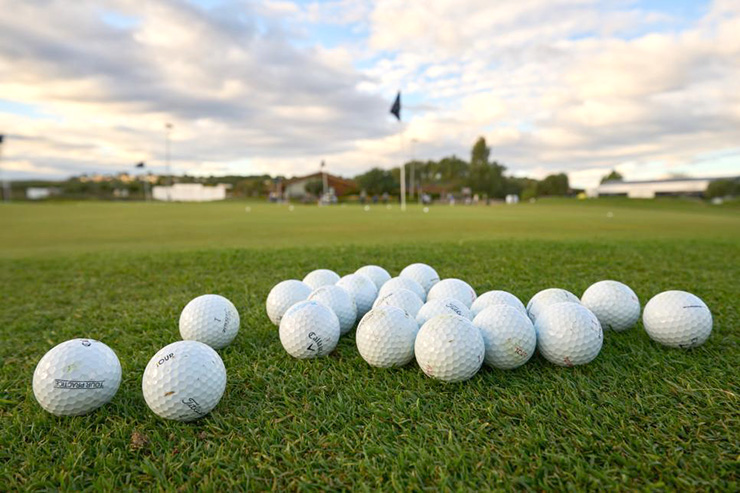Question: I just overhauled my entire bag. Should I also reconsider the ball I’m playing?
Answer: Don’t just listen to us. Take the advice of this week’s PGA Tour winner Davis Thompson. “Getting fit for golf balls is a lost art,” he says. “It’s important for amateurs to know which ball they need to play. Titleist has a lot of great options for amateur players, but it’s not always just buying a Pro V1 or Pro V1x but other options, too. You’ve got to find which one checks all of the boxes that you want checked off.”
Amen, Davis. “What ball should I play?” is a question we get with regularity, but the answer is nuanced. Kudos to you for waiting until you had settled on your clubs. That eliminates a huge variable. As for selecting the right ball, the major ball companies have made progress in assisting golfers in ball fitting. Companies like Bridgestone, Callaway, Srixon, TaylorMade and Titleist should be applauded for this, but their online fitting tools aren’t necessarily the best at helping you choose the right ball for your game. You can’t figure this out by answering a few questions, and these companies not surprisingly are only going to recommend one of their own balls.
Making matters more confusing is that good golf-ball technology can now be found in models costing as little as $20 a dozen. The most expensive balls aren’t necessarily the best for your game. That’s a lot to dig through. What’s a weekend warrior to do?
First, focus on one or two characteristics, like greenside spin, and be wary of solely determining a ball’s efficiency on how far you can bust it off the tee. Starting your ball-selection process from the green and working your way back to the tee is more helpful than starting at the tee and moving toward the green.
That said, you cannot totally ignore the numbers off the driver. If you have a slower swing speed, odds are you might need a ball that spins a little more to keep the ball airborne longer for greater carry.
Our advice: Identify two or three areas of your game where you truly feel a ball could make a difference. Most of the time that is from 100 yards and in. Then do some research on balls that address those criteria or better yet talk it over with your pro and get some recommendations to try. Remember, the barrier to trial is the cost of a sleeve, so you try four different models for the cost of a dozen balls. Work on those shots with those balls, and we’re confident that you’ll have a revelation.
Of utmost importance: Be honest with yourself about your game’s strengths and weaknesses when trying to assess which ball is best. If you think about what you really need in your game, you’re that much closer to finding the right ball for you.
Main image: When testing golf balls, start with shots around the green and then work your way back to the tee. Angel Martinez









